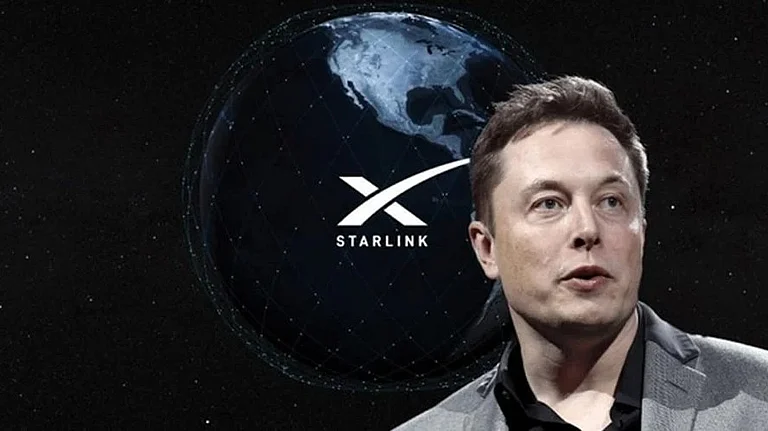Fifteen years ago, digital was a strategic extension of a company's business. Today, the whole conversation is about how they can put digital at the core of their business.
When it was founded in 1990, clients would come to Publicis Sapient and ask for a digital strategy. Now, they seek a system for the digital world.
This is a significant flip for the company, with 20,000 employees globally, purposely built for the digital era three decades ago. While it is not directly involved in the Indian market, the country remains a strategic region since it works with its global clients based out of India.
Publicis Sapient does this through its 'Strategy, Product, Engineering, Experience and Data & AI (SPEED)' initiative. It is tuned for companies shifting from a sequential approach to a more agile strategy where a rapidly changing consumer landscape demands quicker, continuous transformation loops. The key lies in holistically integrating design, product, engineering, experience, data, and artificial intelligence (AI), ensuring adaptability and innovation in an ever-evolving market.
SPEEDing Up Transformation
Sanjay Menon, managing director of Publicis Sapient India, says this approach brings an integrated perspective across capabilities, as it works with clients across the SPEED frame in shorter loops. "India is absolutely a front runner regarding all these capabilities. We have teams threaded globally where the dynamics have changed from brands controlling consumer interactions to not having control because users can close their browsers at will. The challenge lies in crafting a compelling user experience that encourages ongoing engagement since the user holds the power," he elaborates.
Menon believes that brands must comprehend user behaviour and tailor experiences accordingly. Additionally, the evolution has allowed Publicis Sapient to integrate global teams, operating within a globally distributed delivery model that defines its approach. What started as mere extensions has evolved into a holistic change driven by shifts in consumer context, competitive landscapes, and overall market dynamics, which is still growing actively.
Publicis Sapient has been strategically acquiring businesses, broadening its geographical presence, and enhancing its expertise in key technologies in pursuit of this objective. It is certain that technologies, including generative AI and cloud computing, can propel the forthcoming wave of digital business transformation at the core of the company's operations.
In 2022, the company acquired Tremend, an independent software engineering company in central and eastern Europe, that created a new global delivery centre for Publicis Sapient. The same year, it acquired Dubai-based Changi Consulting, a cloud solutions company and Salesforce partner in the MENA region.
During the year 2023, the company completed four strategic acquisitions. These involved Tquila ANZ, a Salesforce consultancy; Practica, a technology company based in Latin America; Publicis Sapient AI Labs; and Corra, a leading Adobe partner.
The Evolution of Consumer Interaction And Expectations
Gen AI represents a game-changing inflexion point for Publicis Sapient's business, opening doors to boundless possibilities. Though Menon admits that tech is nascent, it has already displayed tremendous potential that exceeds digital transformation, a term that has been around for a while.
While there is universal curiosity about transformation in the initial stages and it even attracts early adopters, the key question is where it stands on this transformative journey. "The challenge lies in embracing continuous transformation without a defined end goal," Menon opined. " Companies on a transformative journey need to introspect whether they are configured to win continuously or are merely opportunistically winning in one context. This constant readiness to self-disrupt is essential, and failing to lead disruption equates to failing in differentiation."
Gen AI has democratized several processes since the toolset is available for anyone to leverage, be it for job enrichment or value creation, irrespective of the nature of the work. While this provides a gateway to possibilities, the question people need to answer is whether it inspires or intimidates them.
Job titles like 'AI whisperer' or 'Prompt Engineer' did not exist some months ago. However, today, companies are identifying roles that leverage gen AI to unlock value across processes, be it fraud prevention, predictive analytics and proactive maintenance.
The promise of gen AI has been hindered by its high cost, the requirement for specific talent, and concerns related to privacy risks. Hence, many numerous businesses are hesitant to progress beyond initial experimentation.
However, perceiving Gen AI as an opportunity, Publicis Sapient is building intellectual curiosity internally by encouraging experimentation. "We constantly question how to approach tasks differently or reshape our company's approach. It's about mutual investment when we look at our talent pool– how can we invest in you, and how can you invest in yourself to redefine your current role?" Menon explained.
Navigating Crucial Turning Points
To further the enhanced productivity narrative, the company's efforts can be categorised into three areas—investing in tools, education, and leading the conversation with its clients to explore use cases where more value can be added to their business. For instance, it has built PSChat, an internal gen AI tool on existing large language models (LLMs) like GPT-4 and emerging frameworks like LangChain. Menon revealed that this tool can replace five human interactions when a single query is raised, streamlining workflows dramatically.
Incidentally, all Publicis Sapient employees use PSChat, including the top management. The company has curated a Gen AI learning path for the entire talent pool, including the leadership team, because experimentation is the best way to learn.
Similarly, its cloud-agnostic platform, PS Bodhi, helps Publicis Sapient to create end-to-end use cases by leveraging existing data. These experimentations are essential because clients are excited about gen AI and want a better visualization of how the technology helps them precisely.
Menon revealed how the company worked with the UK-based Royal Horticultural Society, which has over 200 years of experience in horticulture. It co-created an LLM that can help anyone keen to learn gardening. "Similarly, we engage with retailers in scheduling and forecast modelling. Our people learn about applying these insights in client contexts by understanding the practical implications and driving meaningful change," he added.
Earlier this year, the company acquired Publicis Sapient AI Labs, an AI research and development joint venture it launched in 2020 in partnership with Elder Research and Tquila. In addition to strengthening its data and AI capabilities, this acquisition has enabled it to develop solutions across industries for various applications, including gen AI, natural language processing (NLP), computer vision and autonomous systems.
Recently it also announced the launch of a new joint venture with Tquila called PS Hummingbird, which will extend Publicis Sapient's gen AI offerings powered by Microsoft Azure, Microsoft Copilots, Microsoft Dynamics 365 and Microsoft Power Platform.
Utilizing Microsoft Copilots, this initiative incorporates gen AI advancements into various business sectors, providing customised AI-powered solutions for enterprises in key areas such as sales, service, marketing, supply chain, and finance. Through integrating business process data into Microsoft Fabric, PS Hummingbird aims to prepare enterprise data for generative AI, facilitating the development of tailored solutions. Azure Open AI Service further enables clients to achieve operational efficiencies by implementing these bespoke solutions.
Embracing Continuous Transformation
Publicis Sapient recently released the results of a survey titled 'Are consumers ready for generative AI?', which is part of its annual' Guide to Next' series of data-driven insights on global digital business transformation trends for 2024. Taking feedback from 10,957 consumers in seven countries on how they view (and use) gen AI and how brands can harness it, it showed that while there is excitement among current users around the unfurling possibilities, there are some deeper concerns.
As per the report, the majority of consumers across regions and demographics were concerned that gen AI could cause a loss of human connection (88 per cent), lack of data privacy (87 per cent) and an increase in misinformation (87 per cent). However, Menon believes that gen AI is a massive productivity unlock.
Earlier, if a company wanted to build a perspective or gain insights on complex topics like supply chain management, it would involve multiple conversations manually, which must then be validated. Gen AI enables short-circuiting this process significantly by offering synthesised perspectives, so while the validation remains the same, the efficiency gain is immense.
Similarly, with an internal ChatGPT interface, companies can integrate their talent pool faster, especially if new hires want to understand organisational processes like the leave policy. With Gen AI tools, individuals can be onboarded faster, and their acclimatization into the company becomes shorter, further aiding them in becoming part of the organizational fabric more quickly.
Menon also does not subscribe to the narrative that Gen AI will lead to large scale job losses. "When word processors came in, there were concerns that typists would lose their jobs. However, a transformation occurred where people evolved and repositioned themselves," he pointed out.
What's happening now is irrespective of one's role or function, there's a widespread curiosity about integrating AI into daily context. Soon, this novelty will reach mainstream adoption, helping them focus more on value creation.
"Gen AI can't take jobs; rather, it's about how individuals leverage it. Those who use it better become a viable candidate, which has always been the journey of change," he summed up.
As companies focus on creating more value to meet shifting consumer expectations, they will look at building products with more value. Their ability to create value for clients is what they need in a dynamic world.
Most boards feel increasingly accountable for integrating Gen AI into their business strategies for accelerated growth in the coming months. As the management decides their Gen AI mandate and how it helps their business grow in an accelerated fashion, they are creating more value for their consumers by being there for them in unexpected places.






























